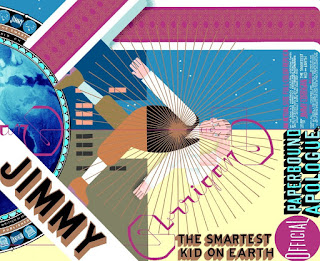Reading Notes: Narayan's Ramayana, Part A
The hero, Rama, is an instantly likable character who the reader or listener admires right away. However, he is very Mary-Sue-esque -- he is described as "perfect" and thus has no obvious flaws. The treachery of Kaikeyi does not anger him at all, and he goes along with it without fuss. Though he has been tricked by Kaikeyi to think that his father commanded that and was not forced by Kaikeyi, he still does not object to abandoning the throne and so much power to become a hermit.
One episode I really liked in this part of the Ramayana is the section which describes the stringing of the bow of Shiva as the way through which Rama wins the hand of Sita in marriage. Thought to be impossible because of the strength of the bow and its accompanying difficulty to bend, the act is completed by Rama with relative ease and almost familiarity. This reminds me of an episode toward the end of Homer's Odyssey, when the suitors are all trying to string Odysseus' bow. Telemachus, son of Odysseus, nearly succeeds, but Odysseus signals him not to string the bow. Odysseus -- disguised as a beggar -- then strings it himself, and he and Telemachus (with the help of a few others) turn to face the invasive suitors. These episodes parallel each other in interesting ways. The bow-stringing competition is an obvious similarity, but the father-son dynamic in the Odyssey is somewhat reflected in the Ramayana. Telemachus, by being able to sting the bow, finally takes up the mantle of manhood for which he has been searching for so long; he becomes like his father; he becomes a warrior, channeling prodigious strength. Rama, similarly, makes a step toward manhood by winning the hand of Sita, channeling the power of Vishnu (or just having the power of Visnu, since he is Vishnu). In any case, Rama claims prodigious strength, especially when measured against all the suitors of Sita (like the suitors of Penelope) who could not string the bow.
Rama broke the bow, something that doesn't happen with Odysseus. What are the metaphorical implications of the broken bow? Source.
Parallels like these are really cool, considering the ancient time of writing and the near-impossibility of cultural contact between Indians and Greeks at such an early time in their histories. However, I suppose stories are the first thing to pass along trade routes, potentially ahead of the goods themselves, and if the distant lands traded goods, they likely traded stories as well. I'll keep looking for such parallels between stories, and thus cultures and worldviews -- it's interesting to see if there are universals shared in the worldwide epic tradition.
Bibliography: Narayan, R. K. The Ramayana.


Comments
Post a Comment